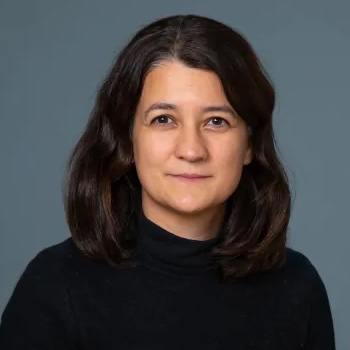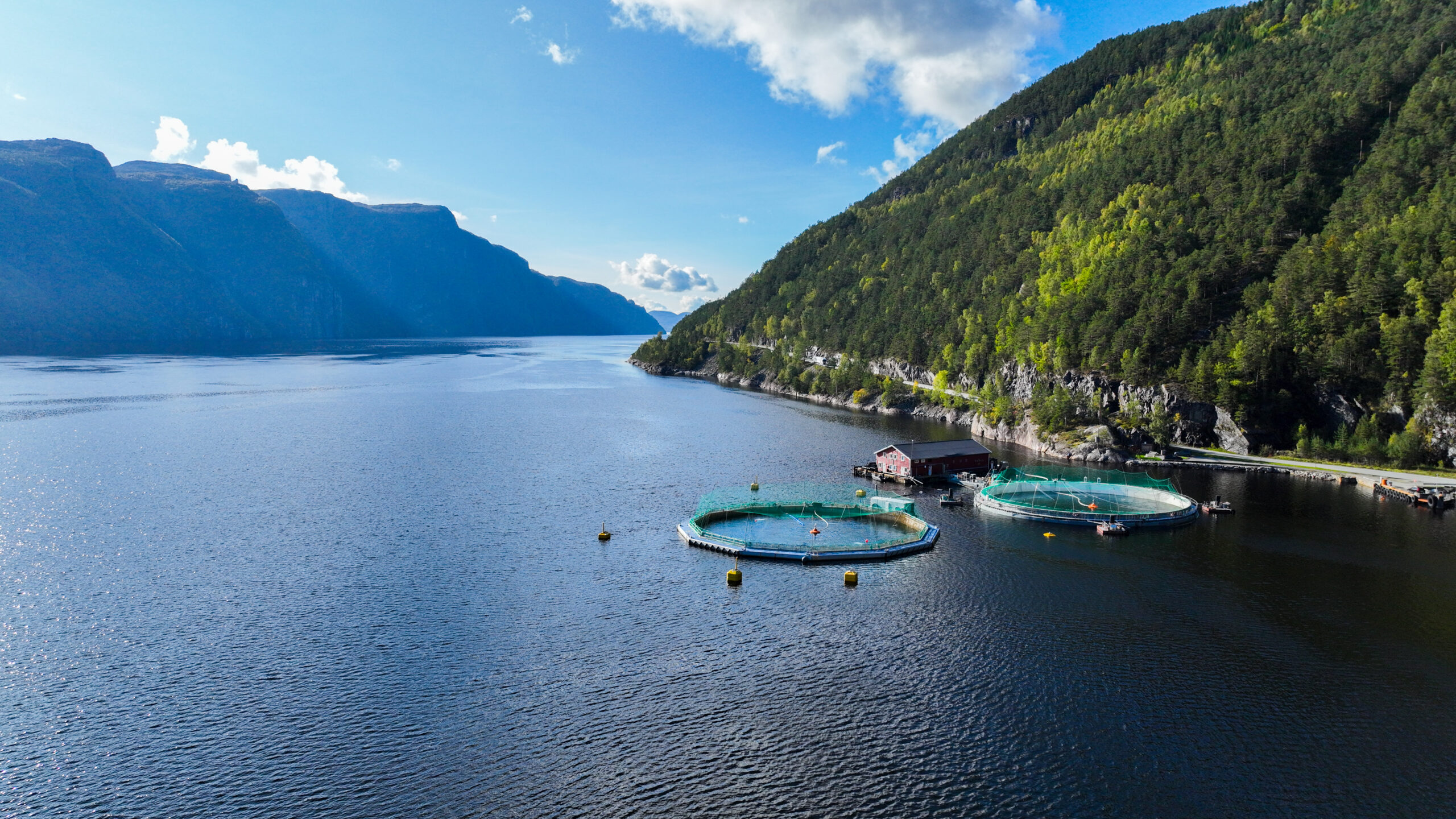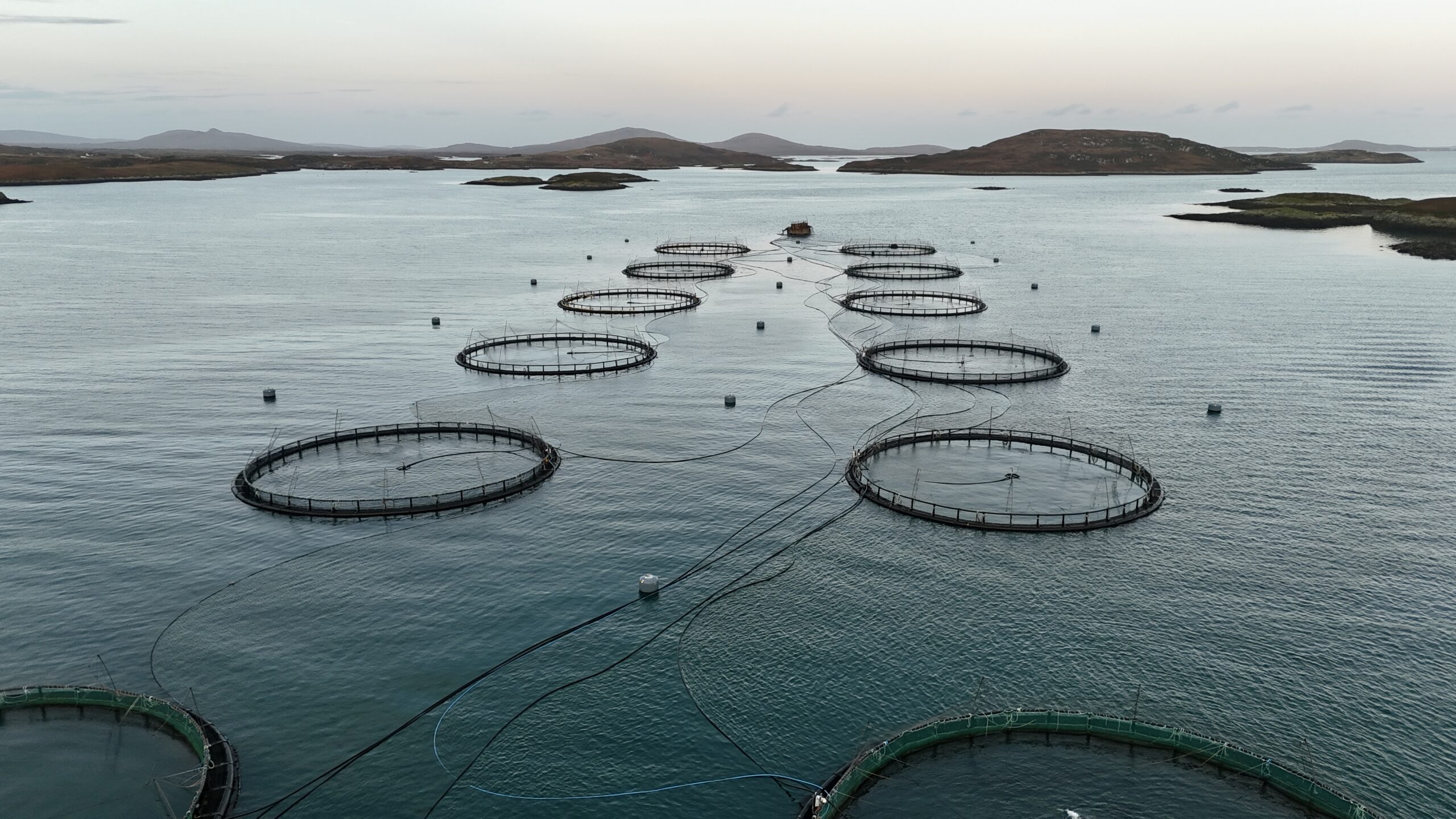Episode 11
Leading the Way: Mowi’s Commitment to Sustainable Global Aquaculture
with Catarina Martins
 Catarina Martins serves as the Chief Sustainability and Technology Officer at Mowi. She has been with the company for more than a decade, during which time she has helped shape Mowi’s approach to sustainability and innovation across the business. In her role, she oversees global research and development efforts as well as the company’s overall sustainability strategy. This includes everything from climate initiatives and biodiversity management to fish welfare and data-driven farming practices.
Catarina Martins serves as the Chief Sustainability and Technology Officer at Mowi. She has been with the company for more than a decade, during which time she has helped shape Mowi’s approach to sustainability and innovation across the business. In her role, she oversees global research and development efforts as well as the company’s overall sustainability strategy. This includes everything from climate initiatives and biodiversity management to fish welfare and data-driven farming practices.
Catarina values the opportunity her role provides to combine scientific knowledge with real-world application. At Mowi, sustainability is not treated as a separate topic but is fully integrated into operations, and she feels incredibly fortunate to help guide that work in collaboration with teams across the world.
Mowi

Mowi is the world’s leading seafood company and the largest producer of Atlantic salmon. Headquartered in Norway, Mowi operates in 25 countries and employs more than 11,500 people. With a fully integrated value chain from feed production and farming to processing and distribution, the company ensures traceability, quality, and innovation at every stage. Mowi is committed to producing healthy and sustainable food for a growing global population, with a strong focus on climate action, environmental stewardship, fish welfare, and responsible farming practices.
Mowi operates in multiple countries and regions. Could you describe your global operations and how you ensure sustainable practices across geographies?
Mowi is the largest producer of Atlantic salmon globally. We operate farming sites in Norway, Iceland, Scotland, Ireland, Canada, Chile, and the Faroe Islands. In addition to our farming operations, we run our own feed production and processing facilities, and we sell our branded products in more than 70 countries. Because we are active across such diverse geographies, it is essential that we apply a consistent sustainability framework while also respecting and adapting to local environmental, cultural, and regulatory conditions.
We achieve this through strong internal governance, clear environmental and social performance indicators, and the use of international certification schemes. We also prioritize transparency. Every year, we publish a fully integrated annual report that outlines our performance across financial, environmental, and social pillars. Our sustainability targets are aligned with the United Nations Sustainable Development Goals, and we work closely with local teams to make sure we are continuously improving at every level of our value chain.

What innovations is Mowi pioneering in feed development and fish health management?
Both feed and fish health are critical areas for achieving responsible aquaculture, and they are areas where we are actively investing in innovation. Because Mowi produces its own feed, we have full control over the ingredients we use and how we formulate our diets. We have made great progress in increasing the resilience of our feed raw materials basket by incorporating sustainable alternatives such as algae oil. These allow us to maintain optimal fish nutrition while reducing pressure on wild fish stocks.
In terms of fish health, our strategy is focused on prevention. We use vaccines, functional feeds, and selective breeding to strengthen fish resilience. We also deploy advanced monitoring technologies that help us track fish welfare indicators in real time. By using data, we can quickly identify any changes in behavior or health and act before problems arise. Our Smart Farming strategy, which includes the use of next-generation underwater cameras, shielding technology such as submerged farming, and the use of robotic net cleaning, is central to our innovation work. This not only improves fish welfare but also helps reduce the need for treatments, which is better for both the fish and the environment.
In terms of fish health, our strategy is focused on prevention.
How does Mowi engage with local communities where it operates? Can you share a recent example?
Community engagement is an essential part of our social responsibility. We see ourselves as long-term members of the communities where we operate, and we aim to contribute positively through employment, education, and collaboration. We take a proactive approach by listening to concerns, creating open channels of communication, and working closely with local partners to identify shared priorities.
For example, in Scotland, we recently expanded our partnership with local schools through the Mowi Academy. This initiative provides students with hands-on learning opportunities related to aquaculture, marine biology, and sustainable food systems. We also support community events and infrastructure projects, and regularly hold open days at our farms to increase transparency and build trust. In every region, we work to be not just a business presence but a valued partner.

Mowi is certified under several GSSI-recognized schemes. Why is this important to your sustainability strategy?
Certification is a powerful tool for transparency and continuous improvement. At Mowi, we believe it is important that our sustainability practices are independently verified and that our customers and stakeholders can trust the way we operate. GSSI plays an important role in benchmarking certification schemes against internationally accepted guidelines. This brings clarity and consistency to the marketplace and helps companies like ours ensure we are meeting credible and recognized standards.
The majority of our farms are certified under GSSI-recognized schemes such as ASC, GlobalG.A.P., and BAP. These certifications cover a wide range of criteria, including environmental impact, social responsibility, and animal welfare. They align closely with our internal goals and help drive best practices across the industry. Certification also gives our customers the confidence that the seafood they are buying has been responsibly produced.
We believe it is important that our sustainability practices are independently verified and that our customers and stakeholders can trust the way we operate.
Mowi is a vertically integrated company that controls the full life cycle of the salmon. For the byproducts that don’t make it into retail products, you’ve set up Mowi Nutrition. Could you explain what those byproducts are and how you ensure they are not wasted?
As a vertically integrated company, we have visibility and control across the entire production cycle, from feed to farming to processing. This also means we are able to take full responsibility for how we manage our resources. One important part of this is our circular economy approach. During salmon processing, not every part of the fish is used for fillets or consumer-ready products. Trimmings, heads, and viscera are all examples of byproducts that, in a linear system, might be discarded.
At Mowi, we have developed solutions to make full use of these byproducts. Through Mowi Nutrition, we transform them into high-value ingredients for sectors like pet food, animal feed, and health supplements. This reduces waste, supports resource efficiency, and ensures that we are contributing to a more sustainable food system. It also adds value back into the business and helps close the loop in our production model.
What advice would you give to others in the seafood sector seeking to elevate their sustainability efforts?
My first piece of advice would be to take a long-term view and make sustainability a central part of your business strategy, not just a compliance exercise. Start by understanding your impacts, both positive and negative, and be transparent about where you stand. Use data to inform your decisions and set clear, measurable goals that are aligned with global sustainability frameworks.
Collaboration is also key. No single company can solve complex challenges like climate change or biodiversity loss on its own. We need to work together across the value chain, from feed producers to retailers, and share knowledge openly. Finally, I would say to embrace innovation. Whether it is in feed, smart farming technologies, digital tools, or packaging, there are so many opportunities to improve. Sustainability is a journey, and it should be seen as a chance to build resilience, create value, and lead with purpose.






































![PSC002_PescamarVertical (1)[17]](https://ourgssi.org/wp-content/uploads/2022/02/PSC002_PescamarVertical-117.jpg)